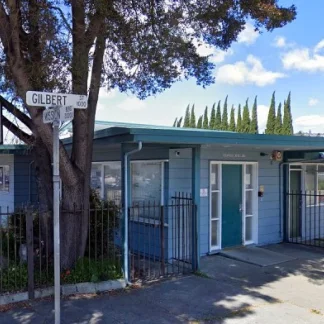Family Paths
Family Paths, located in Hayward, California, offers behavioral health care serv...
HAART – Hayward is a private, non-profit, community-focused addiction treatment center in Hayward, California, specializing in treating opioid addiction, dual diagnosis, drug addiction, and alcoholism. Founded in 1979, this rehab center has provided continuous substance abuse recovery care services like professional therapy and counseling, medical monitoring, case management, and advocacy for those who most need it.
HAART – Hayward is an addiction treatment center committed to helping patients overcome drug and alcohol addiction through its outpatient detox treatment program. As one of the best programs in California, it is a sought-after institution for recovery. Look below to learn more about the detox program on offer:
This rehab center’s outpatient detox treatment program focuses on providing individuals with client-centered humanistic treatment. Those involved in this outpatient detox program will be offered long-term outpatient detoxification with medication-assisted treatment (MAT) that is FDA-approved alongside recovery maintenance.
Individuals enrolled in this program will also receive consistent access to therapy. In addition, HAART – Hayward’s outpatient detox center also provides patients with the skills they need to create a healthy relationship with healing through non-judgemental harm reduction-based treatment.
Contact us for more information: (510) 727-9755

Connect with HAART - Hayward by calling their admissions team directly.
(510) 727-9755 Website Get DirectionsThe Substance Abuse and Mental Health Services Administration (SAMHSA) is a branch of the U.S. Department of Health and Human Services. Established in 1992 by congress, SAMHSA's mission is to reduce the impact of substance abuse and mental illness on American's communities.
SAMHSA Listed: Yes
Research clearly demonstrates that recovery is far more successful and sustainable when loved ones like family members participate in rehab and substance abuse treatment. Genetic factors may be at play when it comes to drug and alcohol addiction, as well as mental health issues. Family dynamics often play a critical role in addiction triggers, and if properly educated, family members can be a strong source of support when it comes to rehabilitation.
Group therapy is any therapeutic work that happens in a group (not one-on-one). There are a number of different group therapy modalities, including support groups, experiential therapy, psycho-education, and more. Group therapy involves treatment as well as processing interaction between group members.
Trauma therapy addresses traumatic incidents from a client's past that are likely affecting their present-day experience. Trauma is often one of the primary triggers and potential causes of addiction, and can stem from child sexual abuse, domestic violence, having a parent with a mental illness, losing one or both parents at a young age, teenage or adult sexual assault, or any number of other factors. The purpose of trauma therapy is to allow a patient to process trauma and move through and past it, with the help of trained and compassionate mental health professionals.
Group therapy is any therapeutic work that happens in a group (not one-on-one). There are a number of different group therapy modalities, including support groups, experiential therapy, psycho-education, and more. Group therapy involves treatment as well as processing interaction between group members.
Trauma therapy addresses traumatic incidents from a client's past that are likely affecting their present-day experience. Trauma is often one of the primary triggers and potential causes of addiction, and can stem from child sexual abuse, domestic violence, having a parent with a mental illness, losing one or both parents at a young age, teenage or adult sexual assault, or any number of other factors. The purpose of trauma therapy is to allow a patient to process trauma and move through and past it, with the help of trained and compassionate mental health professionals.
Trauma therapy addresses traumatic incidents from a client's past that are likely affecting their present-day experience. Trauma is often one of the primary triggers and potential causes of addiction, and can stem from child sexual abuse, domestic violence, having a parent with a mental illness, losing one or both parents at a young age, teenage or adult sexual assault, or any number of other factors. The purpose of trauma therapy is to allow a patient to process trauma and move through and past it, with the help of trained and compassionate mental health professionals.
Family Paths, located in Hayward, California, offers behavioral health care serv...
Lifeline Treatment Services (also called Eldorado Community Service Centers) off...
Terra Firma Diversion - Educational Services, located in Hayward, California, is...